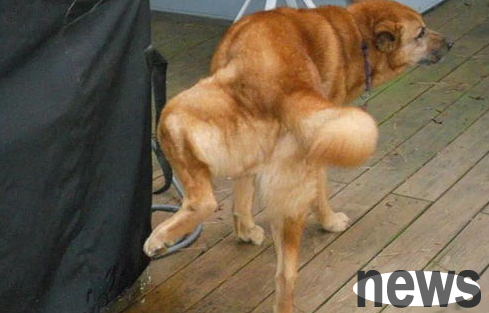What if a dog can t urinate? Irregular urine can be fatal?
What should I do if a dog cannot urinate? Irregular urine can be fatal? If the dog has a lot of pain in urine and cannot urinate, it should be taken with enough attention. It is possible that the dog has bladder stones. If the bladder stones are not big, there will be no particularly impact on life. Once it becomes large, it will cause pain and cannot urinate. In this case, you will have to be sent to the hospital for catheterization. If it is serious, the stones must be removed through surgery!

It is painful for dogs to urinate. What should I do if I can’t urinate? Bladder stones are also a common disease in daily life, and are common in adult or elderly dogs. This kind of situation is rarely seen in puppies. The causes of bladder stones are not very clear, and are usually related to urinary tract infections, mineral metabolism disorders, and daily diet.
1. Cause
What should I do if a dog suddenly bites you? These three methods may protect you. If you don’t believe it, try
What should I do if the dog is painful to pee, and I can’t urinate? Among dog bladder stones, small gravel is basically the main one. The causes of bladder stones are not yet fully understood. It is generally believed that they are related to urinary tract infections, lesions, mineral metabolism disorders, and changes in urine pH. The center of the stone may be related to inflammatory reactions. The accumulation of bacteria and inflammatory products in the urine can become the core of precipitation of salt crystals. After that, such as excessive calcium content in the urine, insufficient drinking water in summer, excessive salt concentration in the urine, etc., leading to increased stones. At the same time, if the urine pH is alkaline, it promotes the form of stones. If the urine retention time is too long, the urea in the urine will decompose into ammonia, making the urine alkaline, and some salts that are not easily dissolved under alkaline conditions precipitate, and the salt crystals precipitate, promoting the formation of stones.
2. Symptoms
What should I do if a dog is suffering from urine and can’t urinate? Dogs with urinary stones usually show depression, anorexia, or stop eating, and unwilling to exercise; the body temperature is generally normal in the early stage, and then the symptoms are elevated body temperature, and the body temperature drops to death after uremia in the later stage; when the urethra is not completely blocked, sometimes vomits, hesitates, hesitates, but hesitates, and hesitates to have sex, and hesitates to have sex, and hesitates to feel full of ammonia. When the urethra is blocked, vomits and appetite is exhausted; the abdominal circumference is generally not obvious, and the touch is tense and painful. Careful examination can make you feel the full bladder. Untimely treatment can cause death due to uremia.

3. What should I do if I diagnose
that dogs are suffering from urine and can’t urinate? Generally, catheters are used to catheter once. If the urine contains white crystals, it means there are stones. If the situation is serious, surgery must be done as soon as possible.
4. Treatment
4.1. Dogs without urethral blockage can be given food rich in vitamin A, and at the same time, they can be fed Chinese medicine for stone removal, and a lot of clean drinking water and diuretics. At the same time, pay attention to observing urination and clinical symptoms.
4.2. Dogs with urethra blockage or large bladder stones in the bladder should undergo surgery as soon as possible to remove the stones. However, basically, you will go to the hospital for surgery. After the surgery is over, you should still pay attention to your daily diet, because stones are a disease that is likely to recur and it is difficult to achieve radical cure. It’s very painful for dogs to urinate. What should I do if I can’t urinate?
5. Prevention
5.1. Dog stones are more common in clinical practice. To reduce the occurrence of urinary stones, pets should be kept without partial food, and try to keep pets in the house to have urination and defecation, and not hold back urine, and have sufficient clean and hygienic water sources.
5.2. In clinical practice, early diagnosis should be made. For suspected stone cases, the right medicine should be prescribed. A large number of intravenous anti-inflammatory drugs should not be injected, otherwise it will cause bladder rupture and cause death of the affected dog. It’s very painful for dogs to urinate. What should I do if I can’t urinate?
5.3. Try to eat dog food as much as possible. Snacks, etc. can be fed occasionally. Try not to feed the food we eat.
5.4. Pay attention to moderate exercise in daily life, so that dogs are more likely to urinate when going out, which can also effectively improve the dog's urine holding.




